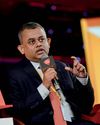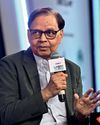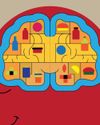
BACK IN 1969, when Robert Noyce, having co-founded Intel barely a year ago, visited India to see if he could build a fabrication unit to make integrated circuits, no one had imagined a world dominated by electronics and semiconductor chips, as ICs are called. India offered him the opportunity to set up a fab, but it was too small for Intel's ambitions. Later, India did make a beginning with the Semiconductor Complex Ltd, but its facility in Mohali, near Chandigarh, was destroyed in a fire in 1989.
Today, in a post-Covid world, every major economy that has outsourced semiconductor chip manufacturing for decades, is seeking self-sufficiency. And so is India, with a ₹76,000-crore semiconductor and display fab scheme.
While Intel hasn't considered India yet for a fab, some leading names, such as the US-based Micron, Taiwan's Powerchip Semiconductor Manufacturing Corporation (PSMC), and Japan's Renesas have shown trust in the country's semiconductor ambitions. Micron is setting up an assembly, testing, marking, and packaging (ATMP) plant. PSMC and Renesas are working with Tata Electronics and CG Power on a semiconductor fab and a packaging plant, respectively.
But the government isn't stopping at fabs, testing and packaging plants: it is working on a 360-degree approach to creating an ecosystem and leading chip innovation.
The setting up of semiconductor fabs and ATMPs in any country usually leads to the development of a downstream ecosystem-industries that utilise the output to manufacture finished products. Putting in place such an ecosystem is critical to India's semiconductor dreams, says Ashwini Vaishnaw, Union Minister for Electronics and IT. "When semiconductor manufacturing begins in a country, many downstream industries start instantly, like laptop manufacturing, server manufacturing, electric vehicles, automobiles, machines used in factories, where semiconductors are used," he says.
Diese Geschichte stammt aus der April 28, 2024-Ausgabe von Business Today India.
Starten Sie Ihre 7-tägige kostenlose Testversion von Magzter GOLD, um auf Tausende kuratierte Premium-Storys sowie über 8.000 Zeitschriften und Zeitungen zuzugreifen.
Bereits Abonnent ? Anmelden
Diese Geschichte stammt aus der April 28, 2024-Ausgabe von Business Today India.
Starten Sie Ihre 7-tägige kostenlose Testversion von Magzter GOLD, um auf Tausende kuratierte Premium-Storys sowie über 8.000 Zeitschriften und Zeitungen zuzugreifen.
Bereits Abonnent? Anmelden

"Do what's best for employees"
BEST ADVICE - PANKAJ JATHAR | CEO | NIIT LTD

Your Palate for 2025
What's in store for you in the New Year when you go out for a meal or a drink? We ask industry experts to predict F&B trends for 2025

"RBI'S STANCE SHOULD BE TO KEEP THE RUPEE MORE VOLATILE"
Axis Bank Chief Economist Neelkanth Mishra talks about the rupee, quantitative easing, the Trump impact, and more

"We should strive towards two non-zero GST rates"
Arvind Panagariya, Chairman of the 16th Finance Commission, on further reforms in the economy, the Nehruvian era and its impact on policymaking, cash transfers, and more

A GENERATION MAROONED
This generation is creating new grammar for social and professional existence. They are reimagining the very concept of work, identity, and social belonging

A TIME OF UNCERTAINTY AND OPPORTUNITY
A look at the key trends that will redefine how content will be created, distributed, and consumed

Consciousness Shaping Consumption
India has a dynamic and discerning consumer base, whose consumption pattern is experiencing a significant transformation

THE NIFTY ELEPHANTS
The composition of the Nifty 50 index has undergone notable changes in the past 30 years, with only 11 companies consistently remaining in the index. It is expected to undergo further changes in 2025 with the entry of new-age companies like Zomato

REDEFINING THE DIGITAL AGE
For Bitcoin, its future lies not as a currency but as a cornerstone of the modern financial ecosystem

THE FUTURE OF HEALTHCARE
As AI advances, so will its role in health insurance. In the future, it shall perform a variety of complex tasks, making it more accessible and aligned with individual needs